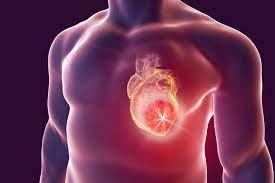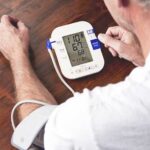Can Hydroxyzine Cause Sudden Death?

Sudden cardiac death (SCD) is a sudden, unexpected death caused by loss of heart function (sudden cardiac arrest). Sudden cardiac death is the largest cause of natural death in the United States, causing about 400,000 adult deaths in the United States each year. Sudden cardiac death is responsible for half of all heart disease deaths.
Sudden cardiac death occurs most frequently in adults in their mid-30s to mid-40s, and affects men twice as often as it does women. This condition is rare in children, affecting only 1 to 2 per 100,000 children each year.
Sudden cardiac arrest is not a heart attack (myocardial infarction). Heart attacks occur when there is a blockage in one or more of the coronary arteries, preventing the heart from receiving enough oxygen-rich blood. If the oxygen in the blood cannot reach the heart muscle, the heart becomes damaged.
In contrast, sudden cardiac arrest occurs when the electrical system to the heart malfunctions and suddenly becomes very irregular. The heart beats dangerously fast. The ventricles may flutter or quiver (ventricular fibrillation), and blood is not delivered to the body. In the first few minutes, the greatest concern is that blood flow to the brain will be reduced so drastically that a person will lose consciousness. Death follows unless emergency treatment is begun immediately.
What is hydroxyzine and how does it work?
Hydroxyzine belongs to a class of medications called antihistamines. It is thought to work by affecting certain natural substances (acetylcholine, serotonin) in your body or by acting directly on certain parts of the brain. Hydroxyzine also blocks a natural substance that your body makes during an allergic reaction (histamine).
Hydroxyzine is used for the short-term treatment of nervousness and tension that may occur with certain mental/mood disorders (e.g., anxiety, dementia). It is also used to help manage withdrawal symptoms (e.g., anxiety, agitation) in alcoholics.
Other uses include helping to decrease anxiety and nausea before/after surgery or during childbirth or helping certain narcotic pain relievers (e.g., meperidine) work better.
Hydroxyzine is available under the following different brand names: Vistaril, Atarax .
Can hydroxyzine cause sudden death?
Yes, Hydroxyzine can increase the risk of QT prolongation (QTP) and torsade de pointes (TdP). This results in an altered electrical activity in the heart, which can lead to abnormal heart rhythm or even cause the heart to stop. This side effect of Hydroxyzine causes dizziness, palpitations, syncope, seizures, and sudden cardiac death.
Hydroxyzine Safety Information
Medicines containing the antihistamine hydroxyzine are available in most countries. The approved uses are different in different countries, but may include treatment of anxiety, relief of itching, use as one of the medicines given before an operation (premedication) or treatment of sleep problems.
- There is a small risk of altered electrical activity of the heart when taking these medicines, which can lead to abnormal heart rhythm or even cause the heart to stop (cardiac arrest). The risk is mostly seen in patients who already have heart rhythm problems or have risk factors for these problems.
- To reduce the risk to a minimum, new measures have been agreed for these medicines to ensure they are used for as short a time as possible at the lowest effective dose, and that their use is avoided in those at higher risk.
- The dose in adults should not add up to more than a total of 100 mg a day. Elderly patients should not use these medicines, but if they do, the maximum dose should be 50 mg a day.
- In countries where the medicines are approved for use in children, the maximum dose depends on their weight, and the daily total should not be more than 2 mg per kg of body weight in children weighing up to 40 kg (children over 40 kg should be given the adult dose).
- Hydroxyzine must not be taken by patients who already have disturbances of heart rhythm or are taking other medicines that can cause similar effects on the heart. It should be used with care if taking certain other medicines that slow the heart rate or decrease the level of potassium in the blood.
- Patients who have any concerns should speak to their doctor or pharmacist.





